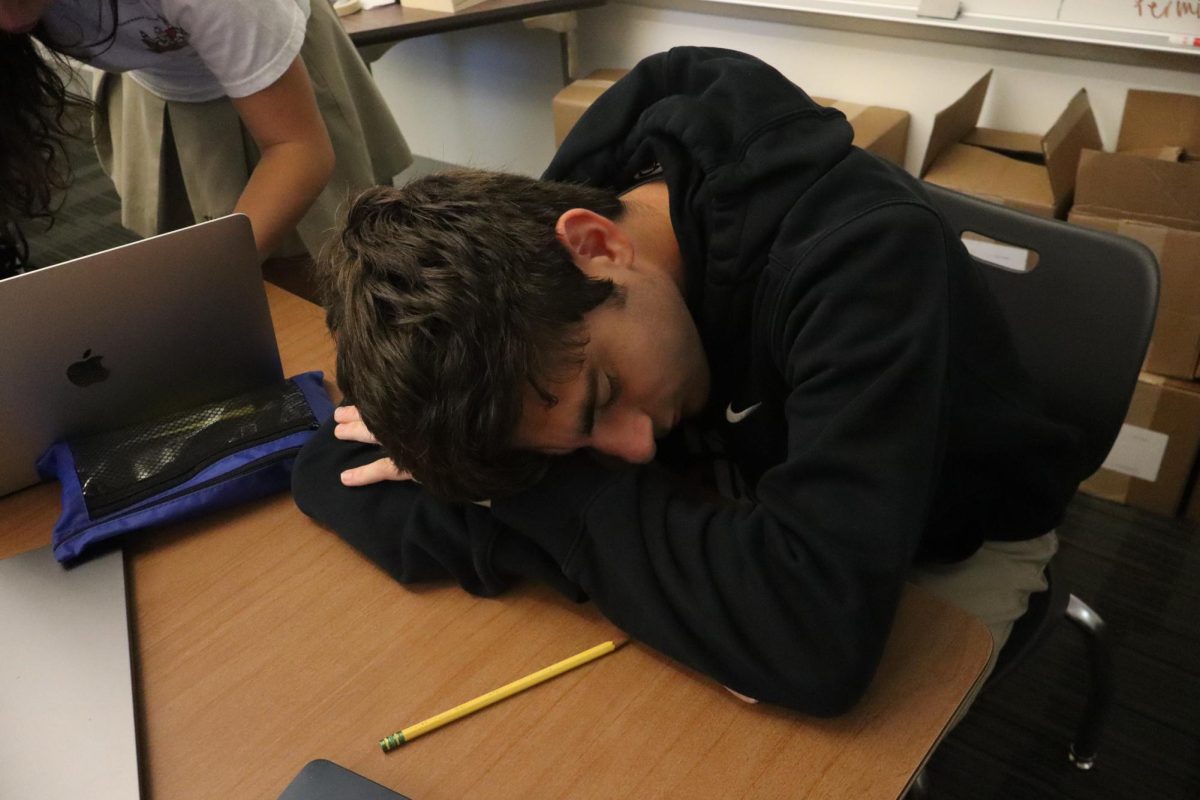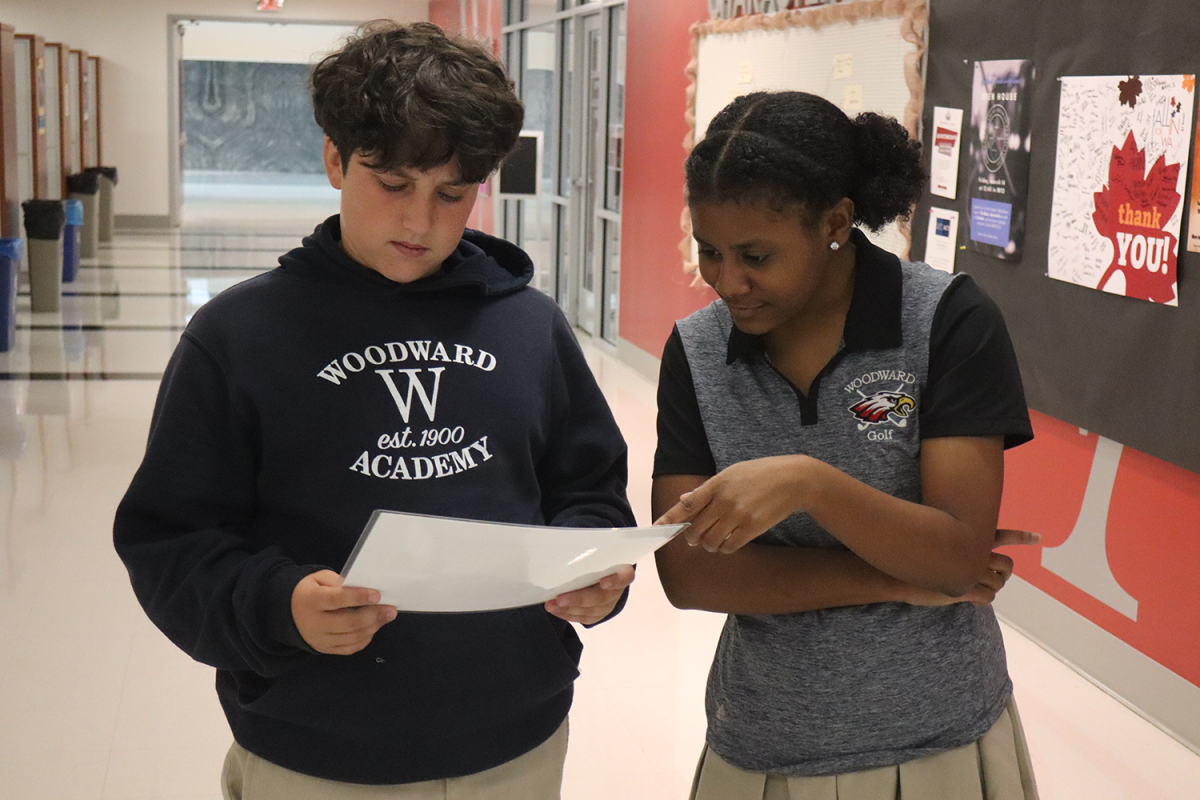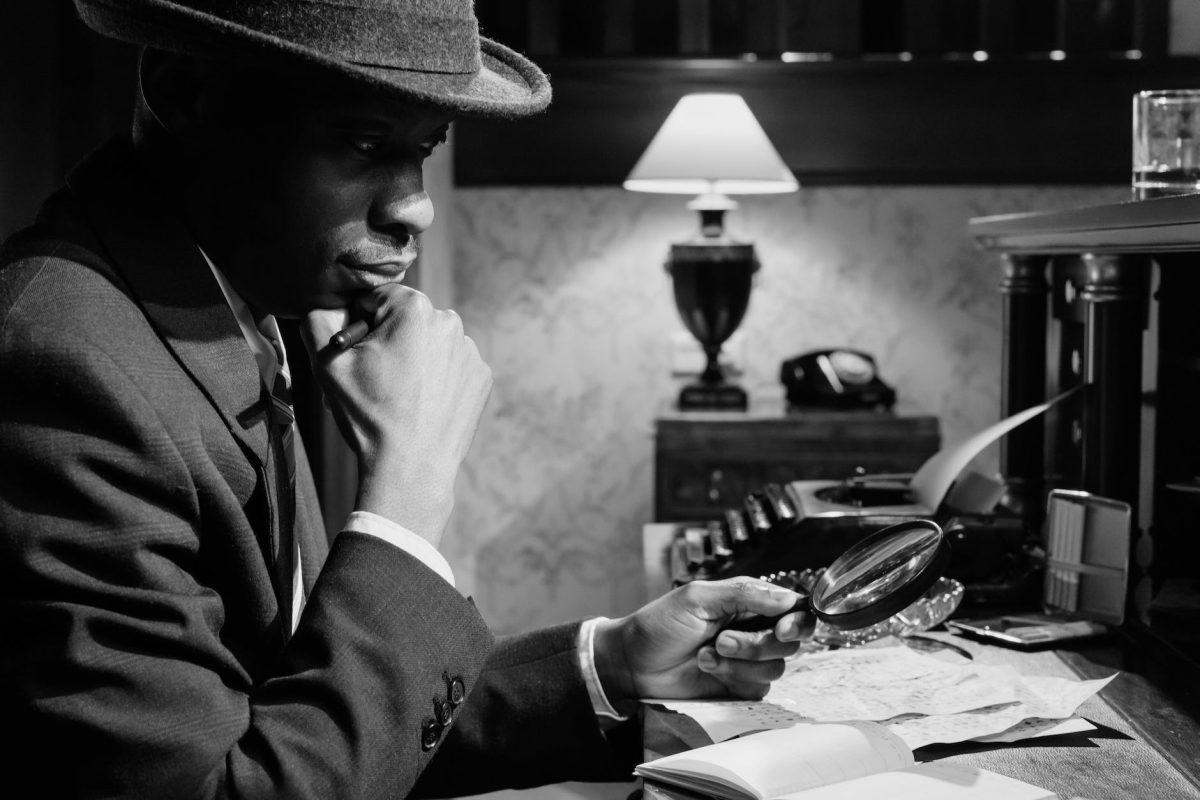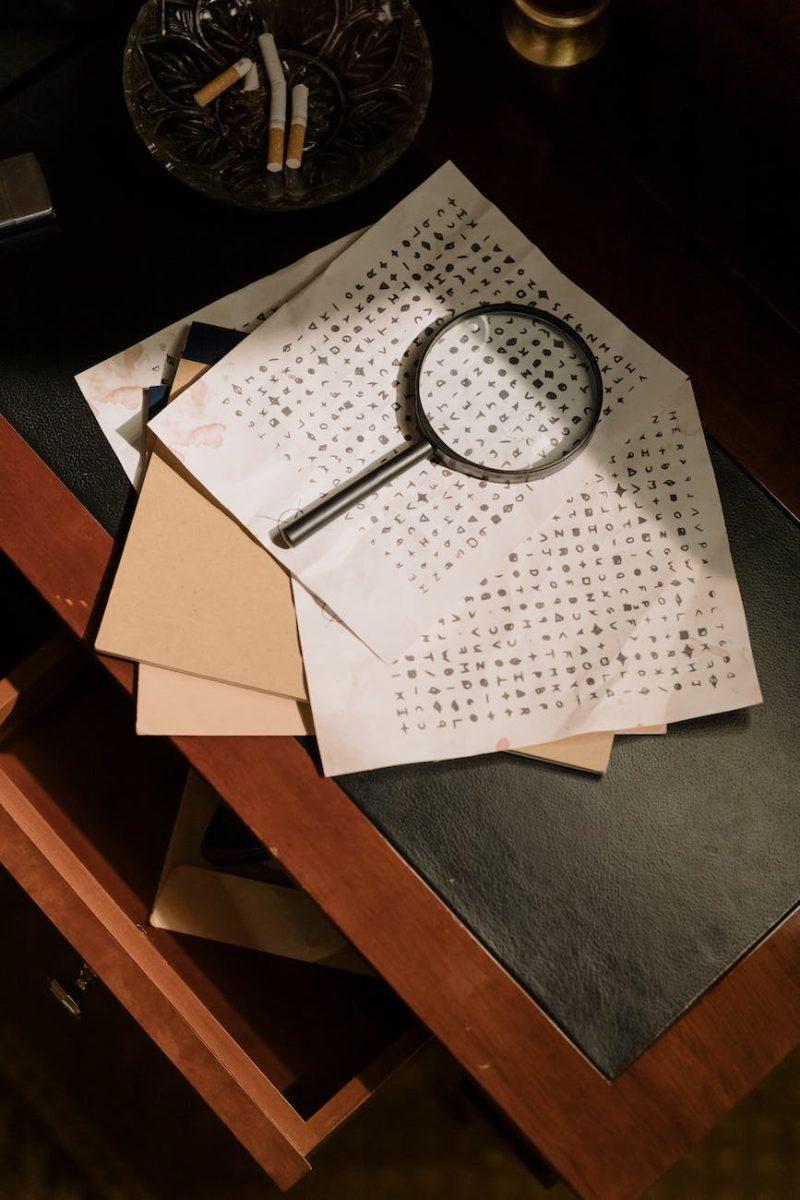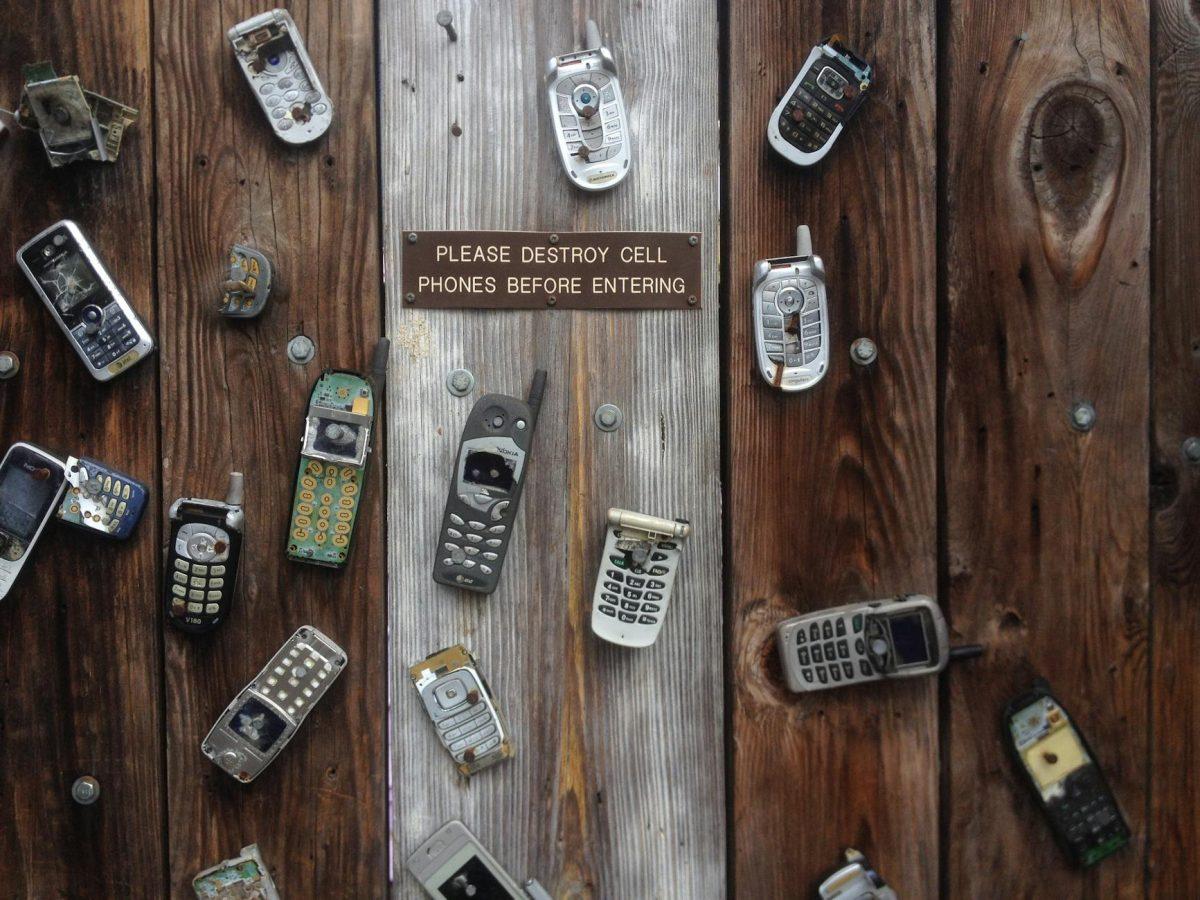By Akiva Bryant
As Upper School students start off the school year, among the things keeping them up at night is the new cell phone policy. You know, the policy. The CELL phone policy. We’ve all heard and felt the groans and despair from students as phones are placed in bags or lockers at 8:40 in the morning. A lot of students are wondering, “What? Really? — but especially — Why???” And their questions aren’t limited to the cell phone policy, but a larger set of rules and changes made to the Upper School.
To answer your question, how about we ask our Upper School principal, Dr. Jonathan Merrill, who led the decision in enacting these new policies.
“There was a book that came out that a lot of people are talking about called The Anxious Generation,” Dr. Merrill said. “The Anxious Generation really targets teens and cell phone use and social media and anxiety.”
Jonathan Haidt, the book’s author, explains on his website that “In The Anxious Generation, I explain the major causes of the international epidemic of mental illness that hit adolescents in the early 2010s, and I offer a path forward for parents, teachers, friends, and relatives who want to help improve the mental health of children and adolescents.”
Whether you agree with Haidt’s claims or not is up to you, but we can all agree that this book has left a huge impact on our school.
“Every summer, as a faculty, we do a summer reading book, and we chose that,” Dr. Merrill said. “Coming out of that book, we had a lot of great discussions, and we just decided, as a faculty, we really wanted to strengthen our place as a way to support our community… we really wanted to strengthen our community as a way to support students. So we had this big thought, let’s take on a cell phone policy that’s not focused on discipline.”
However, Dr. Merrill wants to make their goal clear.
“We’re not doing this to give kids a bunch of hours, but we want to limit cell phone use so that our students are more focused and engaged academically and socially, and so that was really the driving force,” Dr. Merrill said.
By now, a lot of us have heard about The Anxious Generation and how schools across the city, state, and even country are adapting a similar approach to phones, and coverage of the strengths and weaknesses of such bans have been explored by numerous news outlets (take a look at CBS or the NYTimes, for example). But still, what do the people of Woodward think about this policy?
Well, let’s ask history teacher Ms. Lori Fenzl, who believes that this policy will help unify us.
“We’re all putting the phone away so that we’re not distracted,” Ms. Fenzl said. “I know myself and other teachers are trying to abide by the policy as well to help live with it alongside you guys.”
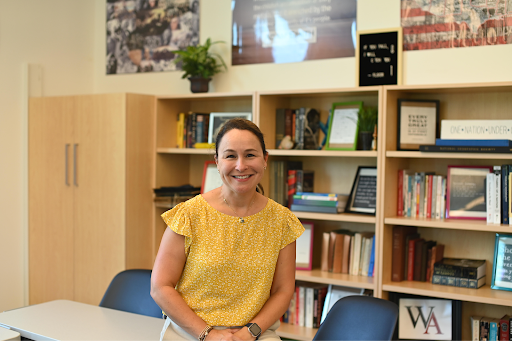
Other newly placed or newly modified policies, such as spirit Fridays, shoes and grading were also introduced in the Upper School. These other policies didn’t just spawn out of nowhere, however.
“So the goal there with those policies was definitely to be more aligned Academy-wide, but from my perspective, I also thought it was a pretty nice way to start the year, because I knew that the cell phones may not be the most popular policy with students,” Dr. Merrill said. “But maybe they could get excited about shoes and spirit wear, because, you know, we definitely want student buy in and I hope that students see that all of these policies working together is not just ‘we’re making a bunch of rules to try to punish kids and to try to make their lives miserable’, we really want to be thoughtful about the policies, and there’s always going to be a why behind our policies.”
But who matters the most when it comes to enacting this policy? Students of course. So how do they feel? Students such as Lillian Stokes ‘26.
“I believe that the cell phone policy does have good and bad qualities, like some of the good parts are that it does help us detach a little bit from our screens,” Lillian said. “And like, you know, not walk around all day with our heads down at our phones.”
“But then also, the bad parts are that, like, there are times during the day where we do need our phones, like to find out where people are, you know, help us communicate better,” Lillian said.
“And then also, I use my phone a lot to turn in my homework.”
Finally, what about the faculty that’s been here for a while? After Mr. Tom Ehrensperger graduated from Woodward in 1973-1978 he not only decided to work here for 40+ years, but his kids were also graduates. So it’s safe to say that he’s very familiar with Woodward and its students.
“There’s so many times I’ve seen kids looking down in their laps, and I have to wonder whether or not they’re on their cell phone and about half the time they are, and they’re utterly distracted,” Mr. Ehrensperger said. “They’re not listening. Not only that, mental health among young people especially, but everybody, to some extent, has declined since then. Now, I love looking at things on there, but it is addictive, and there’s a time and a place for it, but it gets very much in the way of instruction and attention, and so I’m supportive of that.”
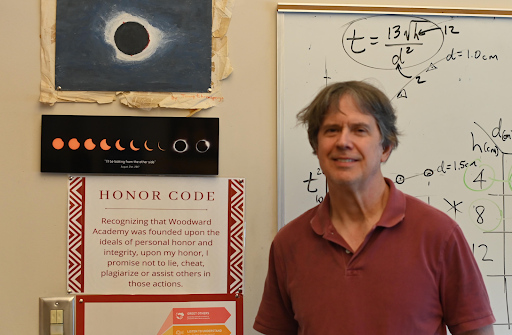
With that, Dr. Merrill leaves a message to those who are still frustrated with this policy.
“I think with all the research and all the evidence that shows that cell phones are a distraction and that there is a direct correlation between amount of time on social media, and amount of anxiety among students, I would just really challenge students to try to see the benefit of this policy,” Dr. Merrill said.


